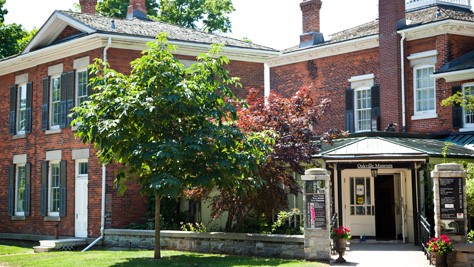
Local museums and archives can provide you with a new perspective on your community
Studying history to most of us means studying history on a grand scale. The rise and fall of civilizations, the progress of major social and economic changes, everything in short that affects whole countries, peoples and world events. The big picture of history as given by these studies is vitally important, but it is worthwhile to remember that those major processes and events we learn about were made up of individuals, families, locales and communities that all played their part in shaping and being shaped by history.
Local History as a Microcosm
Local history contains a wealth of details and stories that help reveal how societal changes impacted the lives of ordinary people. It can be seen as a ‘microcosm’ or representation of large patterns on a small scale. The automobile transformed society in many ways such as making transportation and communication far easier. By investigating local history, you can find documents such as accounts of the first cars in a town, what people thought of them, and how they changed the lives of the community. History writ large can tell you about events like the Long Depression of the late 19th century, while local history can show the impact of this crisis on individuals, such as the Chisholm brothers from Oakville who left their home to seek their fortune in the coal mining industry in Buffalo. Learning about local history turns the grand patterns of historical change into concrete stories that tell of the lives of individuals. It is thus vital to increasing one’s understanding of historical processes.
Local History teaches you about your Community
Locations and objects in your community, sometimes things as mundane as names of streets, can reflect the long heritage of past generations where you live. Few of us know the origins or histories behind our community, but learning the stories of a region’s past can change the way you think about the present. In the course of my research into Oakville’s history, I learned histories behind names and places I had passed by for my entire life without ever giving them a second thought. Navy Street in Oakville, for example is named in commemoration of the British victory at the Battle of Trafalgar during the Napoleonic Wars. The mouth of the Sixteen Mile Creek in my community was once among the first ports on Lake Ontario dedicated to shipping timber to Montreal and beyond. Now, whenever I pass by a name of place I have learned about, I feel a connection to the past of my community.
History is all around you
Above all, studying local history can fill you with the knowledge that history is all around you. You don’t need to visit Rome, Giza, or Machu Picchu to see reflections of the past because your own community contains many sites and records with a rich history. Learning about local history can help you realize the grand scheme of historical change is made up of countless individuals like you and those around you who in their own ways contributed to the ongoing story of your community. And this story likely contains fascinating information that is worth finding and preserving.
Here are some links if you want to begin research on communities near the University of Toronto Mississauga:
